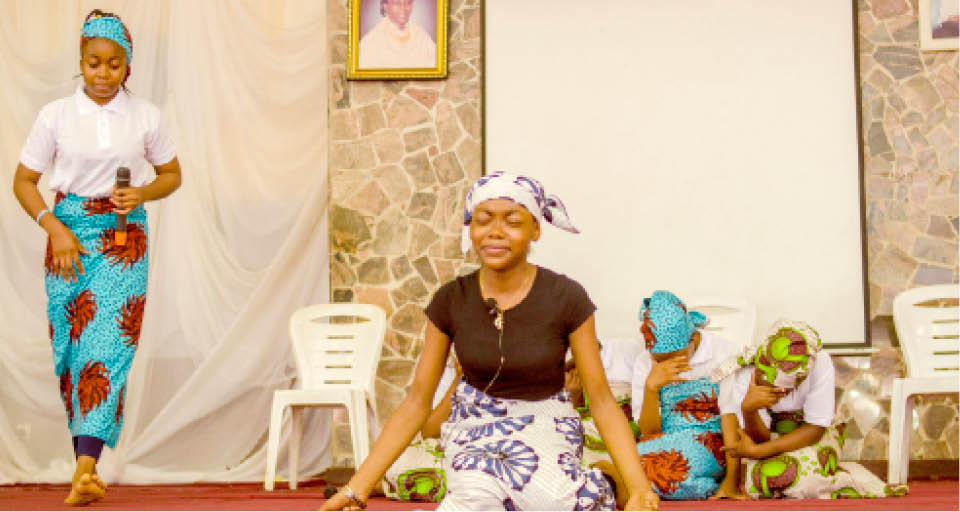‘How El-Amin School motivates students’
El-Amin International School, Minna on Monday, November 4, celebrated its 10th Founder’s Day in remembrance of its founder, former First Lady, late Mrs Maryam Babangida. The event was set aside for students, teachers and parents to make presentations on the roles of the founder in the provision of quality basic and secondary education as well […]

El-Amin students present drama during Founder’s Day Celebration on Monday
El-Amin International School, Minna on Monday, November 4, celebrated its 10th Founder’s Day in remembrance of its founder, former First Lady, late Mrs Maryam Babangida.
The event was set aside for students, teachers and parents to make presentations on the roles of the founder in the provision of quality basic and secondary education as well as for selected speakers, mostly seasoned educationists to talk to students on given topics.
The school’s Executive Director, Dr Muhammad Babangida, said his mother, the founder, from 1993 when she established the school, devoted her life to public education and helping students, until her death.
Known for her values and leadership skills, the founder provided resources and facilities for teaching and learning, which the director said were being maintained to ensure students academic success.
The school too, has adhered to standards and strived to help learners develop into happy and positive young people; it was gathered.
In his lecture on ‘Transforming Education; The El-Amin Experience’, Dr Aliyu Hussain Busa, Provost, Fati Lami Abubakar College for Legal and General Studies, said 26 years ago, Mrs Babangida, founded El-Amin just to train individuals for life.
He said: “Her momentous decision to found the school was never influenced by desire for wealth but for humanity and the school is one of Maryam’s greatest demonstrations of scholarship for humanity and emancipation.
“After her death, people feared that El-Amin would fall. Today marks the 10th year after her death and El-Amin is still waxing stronger.”
The school, with branches in Minna and Abuja, was established based on some life-long educational philosophies that helped it to thrive as a conventional co-educational boarding secondary school for 10 years without its founder, he said, adding that “it is indeed a legacy to extol and emulate by humanists across the world.”
The school, he said, had many unique approaches to education as a model for transformation of education which its contemporaries and indeed all Nigerian secondary schools must adopt if they intend to stand the test of time.
“One of the approaches adopted to make it everlasting is embedded in a phrase in its vision and mission statements viz: ‘to create a school for the rich, the not-so rich and the poor’.”
The school, Dr Busa also said, had integrated all the classes in a society to provide harmonious coexistence. He said, “The El-Amin experience is a paradigm to be learnt by governments, policy makers and education resource persons in establishing schools in the future.”
He explained that the school’s admission policy was the ‘best’ because it offered admission to the average and the academically poor individuals and transforms them all into fully integrated individuals. This he said improved student motivation.
He said: “The function of a school is to train every member of a society and not to reject the failures. If all schools reject students who failed entrance exams in the name of setting standards; who then will teach them?”
The college provost enjoined teachers across the country to raise the bar of their performance and expectation of students’ academic and moral values. To transform educationally, he stated, was to be malleable.
“This means to change attitudes and norms frequently to live up to the expectations of your school and founder or employer, all of which are in the school’s vision and mission statements,” he added.
